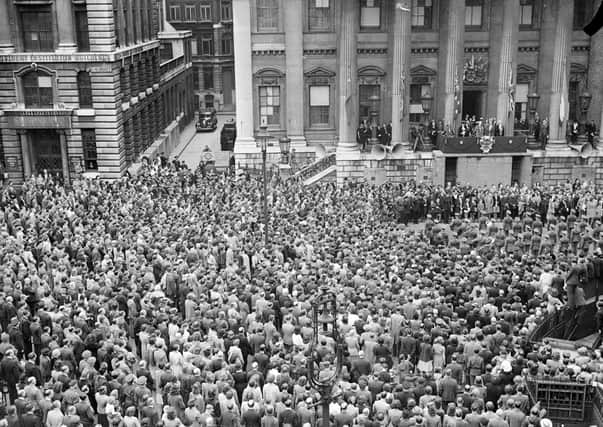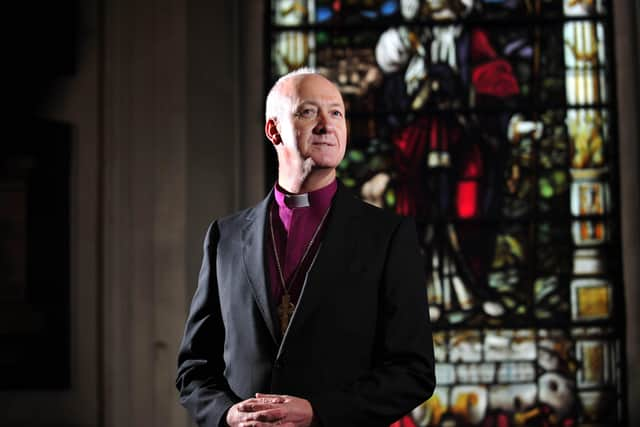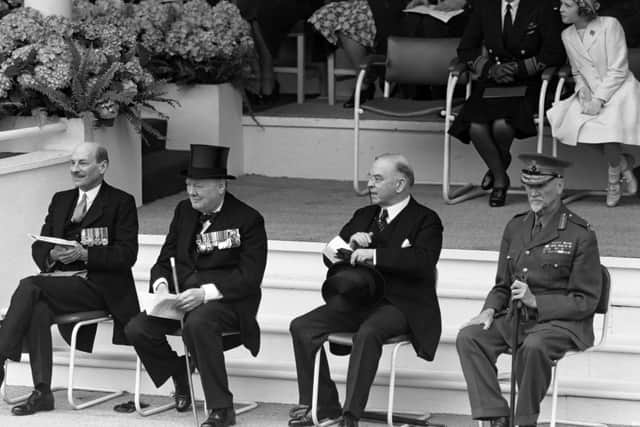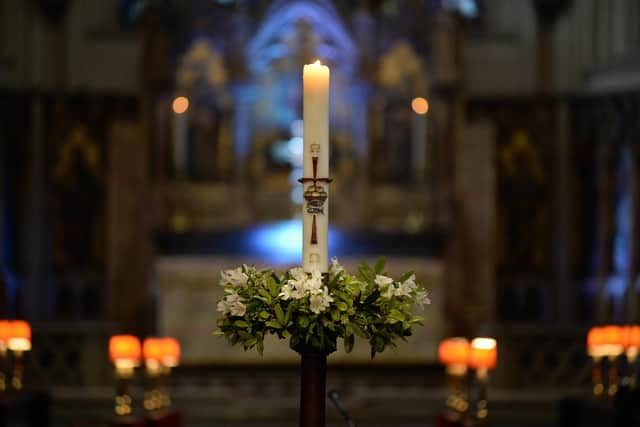VE Day reminds us that our peace must be protected – Bishop of Leeds


I had listened to the stories told by my parents and grandparents of air-raid shelters, bombed houses, destroyed families – especially from the Blitz on Liverpool in May 1941.
Yet, here I was, standing in the pulpit of a church – now restored – that the Allies had fire-bombed on the night of February 13-14, 1945. And I remembered William Blake’s reference to a “fearful symmetry”.
Advertisement
Hide AdAdvertisement
Hide AdThe Second World War cost an estimated 50 million deaths. The casualties who stayed alive in some way are incalculable.


I have had friends in Austria and Germany who were force-marched from their original home in (what became) Yugoslavia to near Paris and then back eastwards to the Danube, confronted by Soviet occupying forces. They were children. War was brutal.
Seventy-five years is not a long time really. The unconditional surrender of the Nazi regime on May 8, 1945, brought an end to the conflict in Europe – although the slaughter continued in the Far East until August. It was, as the REM song puts it, “the end of the world as we know it”.
A world exhausted by violence, fear and suffering breathed deeply … but then had to turn its collective face towards building a future.
Advertisement
Hide AdAdvertisement
Hide AdNot rebuilding, however. Nobody suggested that the world should return to some mythical golden age of the 1920s or 30s. Rather, they knew they had to take responsibility for building something new and untested.


So, while we rightly celebrate the courage and sacrifice of so many during those terrible years of Nazi tyranny and global conflict, we cannot romanticise it and simply stay with the echo of some past glory.
We have to look to the future and ask – if we learn anything from history and those who paid the price of victory and peace – what is required of us in building the world our children and grandchildren will inherit?
If you go to the Holocaust Museum, at Yad Vashem, in Jerusalem, you will eventually find your way to the memorial to the Warsaw Uprising.
Advertisement
Hide AdAdvertisement
Hide AdEither side of a door in a courtyard there are two sculpted reliefs: one depicts the uprising, led by a 19-year-old who refused to lie down and be slaughtered; the other shows Jews being meekly led like lambs, herded by faceless Nazi soldiers. In other words, people respond differently to threat and dehumanisation – and neither should be judged by those who never have to face the choice.


I asked an academic who took me there some years ago why the Nazi soldiers had not been give any facial features. He said that they could not be depicted as human.
So, I asked if that was actually the problem: if we dehumanise the evil-doers by making them faceless, do we also avoid the shocking agony that the immense and systematic cruelties of the Holocaust were perpetrated by people like me and you? He wouldn’t answer, but the question has never left me.
Although I was involved in a distant way in the Falklands War in 1982 (in a previous job in Cheltenham), I was never confronted by immediate brutality or threat. I never had to make the hard choices regarding violent resistance or submission.
Advertisement
Hide AdAdvertisement
Hide AdBut then I also visited the museum in Berlin called ‘The Topography of Terror’ (built on the site where the Gestapo HQ had once stood) – which houses a harrowing account of how civil society gets slowly corrupted by people letting a little bit of civility or humanity go at a time. Eventually it has gone too far. The rest, as they say, is history.
VE Day saw an end to more than conflict. It marked the beginning of a world which needed to build new institutions for peace and stability.
It was understood that peace took a very long time to build – especially based on growing trust and mutual accountability – but could be destroyed in weeks or months.
And the problem is that we don’t see it happening around us or within us. If VE Day does anything, it should pull us up short and face us afresh with the consequences of both civil corruption and historical amnesia. Peace has to be built and protected.
Advertisement
Hide AdAdvertisement
Hide AdSeventy-five years is not a long time. But it is long enough for us to learn and lose the lessons bequeathed to us by those who endured suffering in the past.
As a Christian, faced with the ambiguous record of the Church in Europe in the 1930s and 40s, I can only turn back to the narrative in the Bible that sees humility – not hubris – as the key to peace between people and nations.
It is why VE Day 2020 should be a day for celebration. And for reflection.
The Right Reverend Nick Baines is the Bishop of Leeds.
Editor’s note: first and foremost - and rarely have I written down these words with more sincerity - I hope this finds you well.
Advertisement
Hide AdAdvertisement
Hide AdAlmost certainly you are here because you value the quality and the integrity of the journalism produced by The Yorkshire Post’s journalists - almost all of which live alongside you in Yorkshire, spending the wages they earn with Yorkshire businesses - who last year took this title to the industry watchdog’s Most Trusted Newspaper in Britain accolade.
And that is why I must make an urgent request of you: as advertising revenue declines, your support becomes evermore crucial to the maintenance of the journalistic standards expected of The Yorkshire Post. If you can, safely, please buy a paper or take up a subscription. We want to continue to make you proud of Yorkshire’s National Newspaper but we are going to need your help.
Postal subscription copies can be ordered by calling 0330 4030066 or by emailing [email protected]. Vouchers, to be exchanged at retail sales outlets - our newsagents need you, too - can be subscribed to by contacting subscriptions on 0330 1235950 or by visiting www.localsubsplus.co.uk where you should select The Yorkshire Post from the list of titles available.
If you want to help right now, download our tablet app from the App / Play Stores. Every contribution you make helps to provide this county with the best regional journalism in the country.
Sincerely. Thank you.
James Mitchinson
Editor
Comment Guidelines
National World encourages reader discussion on our stories. User feedback, insights and back-and-forth exchanges add a rich layer of context to reporting. Please review our Community Guidelines before commenting.